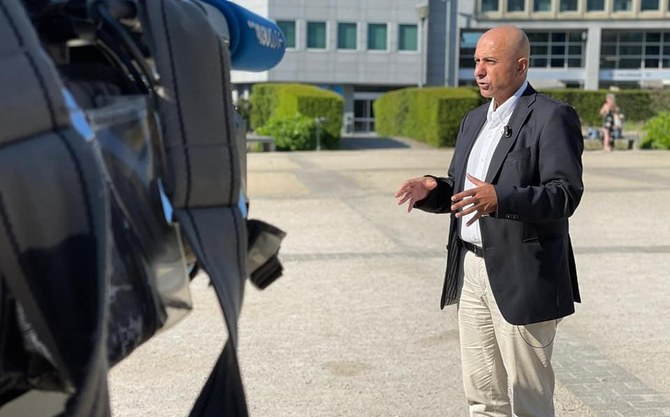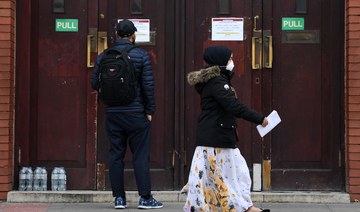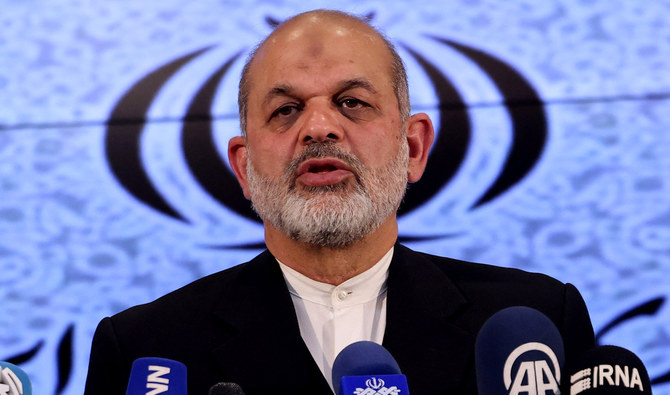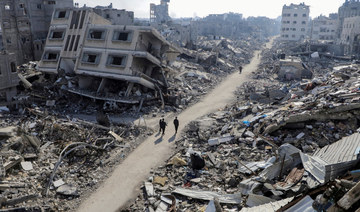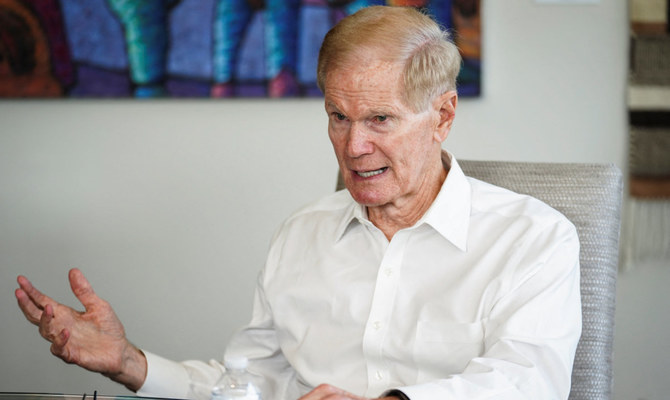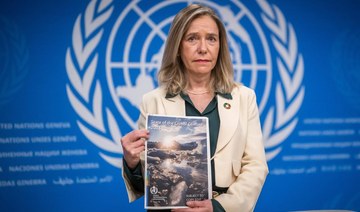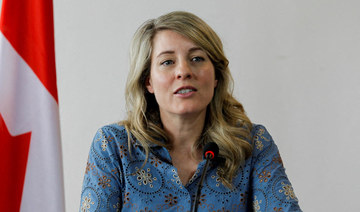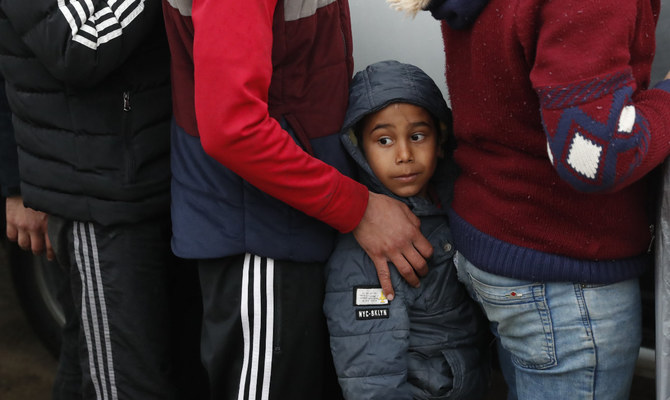LONDON: A British Conservative politician has accused his party of failing to investigate allegations of Islamophobia against a fellow Tory who has since risen to the ministerial level in Prime Minister Boris Johnson’s government.
Sajjad Karim, a former member of the European Parliament for North West England from 2004 to 2019, told The Independent that he was prepared to place identities on record after an investigation into Islamophobia in the party failed to take his claims into consideration.
Karim said that in 2013 he overheard a conversation in which two Tory politicians, including the individual now serving as a minister, plotted to use Karim’s faith as a weapon against him.
“It’s politically motivated. It was entirely a political exercise to try and undermine me — to use my religion as a means to undermine me,” he said.
His claims come just weeks after Tory MP Nusrat Ghani alleged that her Muslim faith was cited by a party whip as a reason for sacking her from a ministerial position in 2020.
“I don’t know Nus Ghani’s case or situation,” Karim said. “All I know is in my case the discussion was about how my religious and cultural background could be engineered politically and used against me.”
Karim said that he stayed quiet about overhearing the conversation at the time, adding that he had “just got on with it,” but later revealed it in September 2019 to the BBC, after which the party invited him to make a formal complaint.
However, he demanded that he be allowed to speak in person to the party chairman, James Cleverly MP, only to be told that Cleverly was too busy.
“I responded, and said: ‘No I’m not going to use the standard process, this is not appropriate.’ And then I was emailed back saying that, actually, the … inquiry was going to be taking place … and that the inquiry would contact me and that I should give my evidence to the ... inquiry.”
The inquiry in question, headed by Prof. Swaran Singh into Islamophobia in the party, published its report in May 2021, which failed to mention the incident. Furthermore, Karim said that he was never contacted for questioning.
“So they’ve gone ahead and concluded all of this but I’d been excluded from this,” he said. “So in terms of my complaint, it was neither dealt with by the chairman, nor was it a part of the Singh inquiry, and therefore it just has not been a part of any process in dealing with Islamophobia in the Conservative Party.
“I think it’s demonstrative of a lack of real, genuine seriousness in the party to actually treat Islamophobia as a serious issue,” he added. “It’s seen more as a nuisance that in some way has got to be dealt with.
“Do I have any confidence that the current setup has any interest in actually dealing with my complaint? No, not at all. But that’s not to say that the Conservative Party per se — the board — ought not to be interested in what has actually happened here.”
Karim added that he would name the individuals involved in the allegation. “I will tell the party the full facts of what I experienced,” he said. “The party has then got to decide, are they (the minister) a fit and proper person?
“I think that there is a need for the Conservative Party to think long and hard today about how we once again become a party that is actually fit for governance,” he said, adding: “Whilst Boris Johnson is at the helm, I just don’t see how you can carry out the necessary reforms — he’s just too much of a distraction.”
A Conservative Party spokesperson told The Independent: “We committed to holding an investigation … following accusations of discrimination within the party.
“An independent investigation was undertaken by Prof. Swaran Singh, with individuals submitting evidence via a public call for evidence. Prof. Singh’s investigation concluded that there was no evidence of institutionalized racism or a systemic issue.
“The Conservative Party has a zero-tolerance approach to discrimination of any kind, and has always acted to deal with any incidents of hatred, abuse or intimidation.”



